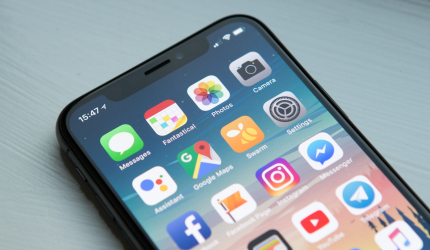A wrong assessment of a project is one of the cause it fails. We have met a lot of clients attracted by providers thanks to (because of) their low costs compared to others, but afterwards blocked in the development process.
Why?
First of all, because the provider reduces its costs to ensure clients, knowing he won’t be able to finish the project on time, even before signing it. This underestimation causes stress in the technical team. Engineers will have to shortcut the project in order to stick with the deadlines. Of course it has an impact on quality and specifications asked by the client, and the business relations will become worse.
Moreover, a lot of project’s holders think to have the idea of the century. The one which will bring them to success, close to Zuckerberg. The one which will take over from Uber, Snapchat, or Instagram. Only that, for a few hundreds dollars. These $1 Billion + estimated app companies haven’t been developed for this range of money, obviously.
Finally because existing tools on the market allows to take interesting shortcuts to develop hybrid apps. Technically, it consists in writing a one code, compatible with any platforms (Apple, Android, …). Even interesting for small budgets, apps for business, or prototypes, it has a negative impact on User Experience. Thus, it has to be banned for consumer (on app stores) applications.
The good assessment of your project by a Mobile Factory is a key success for it.
What is a Mobile Factory?
The rise of mobile apps has brought this concept of driving mobile app development projects in a technological ecosystem adapted Time To Market. This is a multidisciplinary team of mobile development experts.
Who are the main characters?
Most of the time, a qualified Mobile Factory unit is composed by:
- The functional project manager, who ensure suitability of the different desired features from the specifications and the deliverable ones. He writes technical specifications and the materials.
- The technical project manager is responsible for the technical team management and has to ensure the respect of deadlines and milestones to the functional project manager.
- The designer, or creative director turns mock ups into graphical interfaces (GUIs).
- At least to specialised lead developers. In the current context, their are either iOS lead, Android lead, or Windows lead.
- At least to back-up developers: each proficient with one platform to support the lead developers.
- A functional tester who execute and confirm the tests related to the functional project manager.
Steps before setting any budget.
Establish the repository of the requirements.
This document is often displayed through a table, listing all the wanted features. It has to be written by the Functional PM, then confirmed by the client. It represents the project scope and the railing.
Once this repository is validated by the client, the Technical PM is responsible for the budget definition for every features.
Identify non-productive tasks.
At this stage, to ensure the success of the project, it is mandatory to define non-productive works. Each of this tasks needs to be allocated to the time spend on the project.
Example: A project manager who drives 5 projects simultaneously has to allocate 20% of its time by project. On a 100 days projects (at this stage, non-productive tasks have not been integrated), the PM will have to add 20 days.
Here is a simplified table example:
How to make a well defined technical budget?
- Forget nothing: It is really important to remember everything when it comes to defined the budget. You need to spend your time to well understand the project. Iteration time or delivering are two tasks often forget, but, combined to one other, have huge negative impact on the planned schedule.
- Be honest: A well made budget has to be realised with project parameters in mind only. Thus, forget the client’s max budget, the team mood, the taxed benefit. However, you need to consider the client’s palatability toward mobile technology. It will ease or not the relation.
- Be realist: The budget need to take into account every partner competencies. Therefore, the person in charge of setting the budget need to check futur actors beforehand.
Sending it to the client.
On the technical budget basis (set in days), we apply the commercial budget which consist in add the average daily rate price to each performance.
We are talking about the quote which needs to be sent with functional and technological scope. The latter gathers:
- Components from the Repository of the requirements
- Assumptions taken from the Mobile Factory
- Technologies used to carry out the project
- Production method chosen: classic, lean, or Agile approach for example
- Technical structure of the project as well as the action scope for each actors
- Expected deliveries





